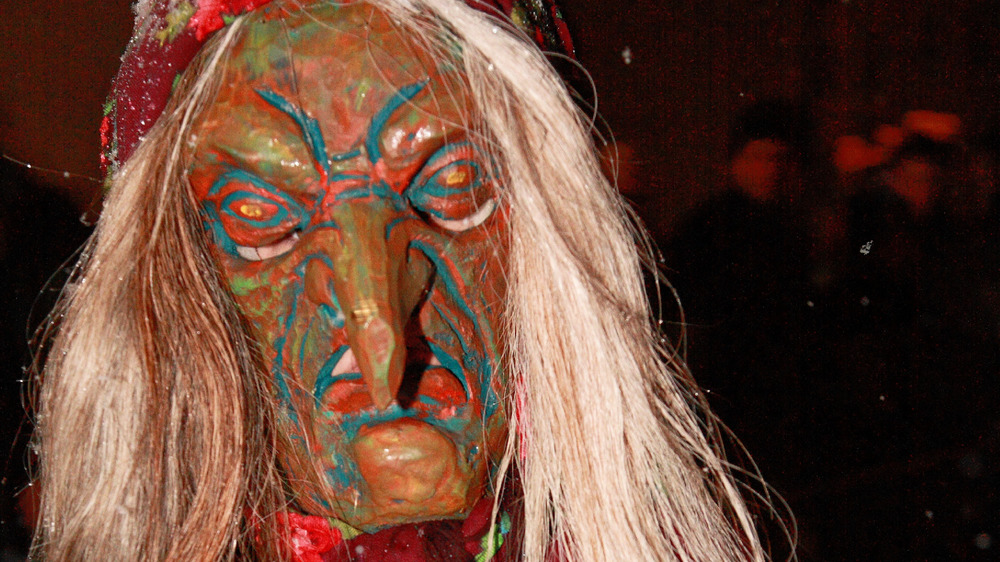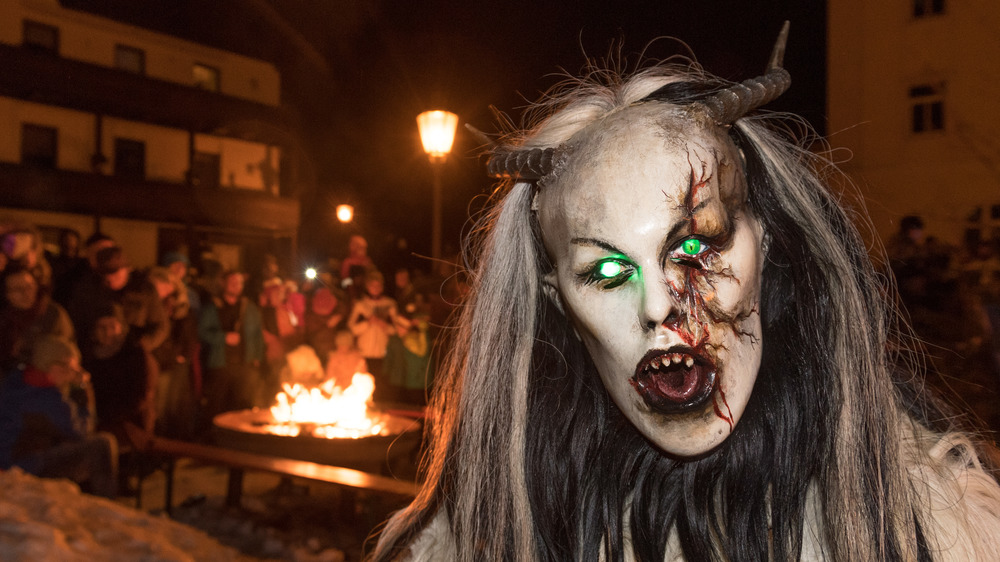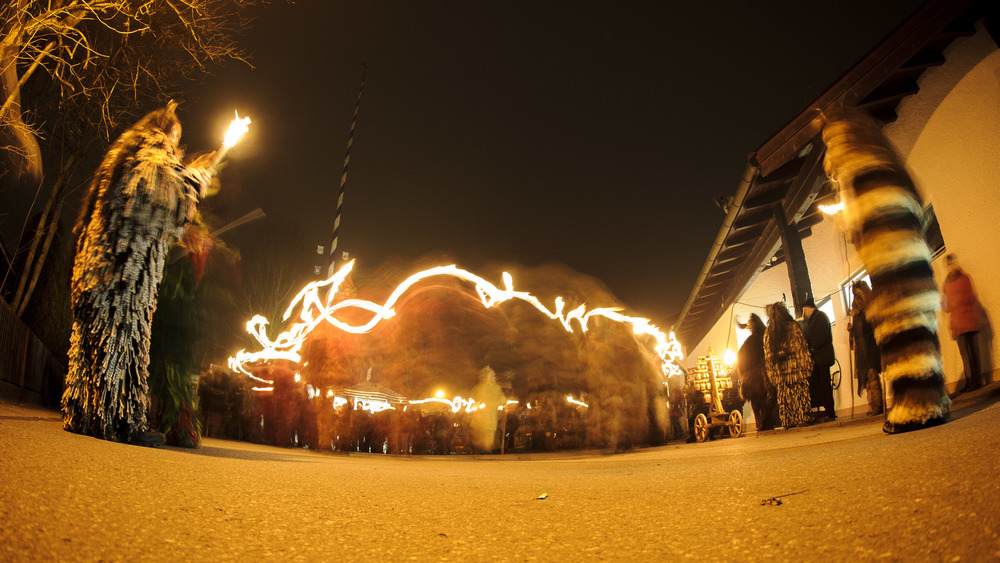The Truth About Eastern Europe's Terrifying Version Of Santa Claus
Santa Claus is a jolly old man in a red suit giving kids gifts. His sweet, charming, and non-threatening vibe is perfect for the holidays. But, not everyone wants to bring fun and happiness to an already festive season. Some people just want kids to cry. Some cultures prefer their Christmas visitors on the scarier side. Like the Krampus, that half-goat punisher of misbehaving children. Or the Eastern European Perchta, sometimes called Frau Perchta.
Frau Perchta is a witch who can take on different forms, including both a beautiful young woman and an old hag. As an old hag, Frau Perchta has a wrinkled face, a long nose, and one foot bigger than the other. Originating mainly in the German Alpine region surrounding Switzerland and Slovenia, she's also called Bertha, Berthe, or Frau Faste.
According to Tor, Frau Perchta carries a basket on her back where she puts the legs of misbehaving children. How ... festive? Perchta translates as "The Bright One," from an old German adjective for bright. Which tracks with her young, beautiful form, who has long, golden hair.
Frau Perchta's role in Christmas, though, has changed over the years. She didn't have anything to do with Christmas for a while, but it turns out that she tends to be most active between Christmas and the Epiphany, so people believed she's more of a holiday thing. Ranker wrote that Frau Perchta preyed on lazy people year-'round before transforming into a general threat against children.
She makes coal look like a good gift
While Frau Perchta's motives have changed from a demon who hates laziness to the punisher of children, she's always had one constant trait: her violence. She's better known as the belly-slitter. According to author Stephen Morris, Frau Perchta hides a long knife in her clothes, ready to slit open the bellies of those who haven't finished their work and been bad throughout the year, to steal their guts. And if people eat the wrong thing on her feast day, she takes out their insides and stuffs them with straw and glass shards. So, don't forget that gruel and fish.
She roams around the countryside in the midwinter and commits a little breaking and entering. Frau Perchta knows if anyone in the house, particularly children and young servants, did all their work and behaved well for the year. If they did, she rewards them with a silver coin. Sometimes she'd leave them nuts and sugar plums. If she was feeling particularly generous, Frau Perchta can appear to a family in the guise of a kindly woman and bless them with good crops for the year. And if they didn't, well, more belly-slitting. If they lied, Frau Perchta would also cut their tongues off with glass. (Boy, that lump of coal sounds so much better in comparison.)
One way to deflect her mighty knife, said Tor, is to eat heavily during the Epiphany feast. A full, round belly can stop her blade, it's said.
Technically she's a goddess?
Frau Perchta's more violent tendencies grew when the spinning trade also blew up. Spinning wool into thread was tedious work, and Frau Perchta frowned upon those who shirked their responsibilities. If you didn't finish your spinning by Twelfth Night, you'd better gorge yourself on food and foil that knife of hers.
Stories about Frau Perchta were popularized after Jacob Grimm, of Brothers Grimm fame, wrote down her legend in his book Teutonic Mythology. Grimm noted that she could be related to other mythological moon goddesses, such as Selene and Diana. In writing down her story, Grimm also shed light on a group devoted to Frau Perchta. Known as the Perchten, they are spirits that follow Frau Perchta around. They roam around the country with her, terrorizing children. If she deems someone as good, she keeps her band of troublemakers at bay. These demons were probably spirits of children who weren't baptized before they died.
To ward off evil spirits, people began dressing up as Perchten and danced around towns. The men would wield sticks and smack them loudly. They'd also ring bells loudly to drive demons away. These days, the Perchten is more of a performance than an actual ritual.
This Christmas season, make sure your children behave, else Frau Perchta makes a visit with her trusty knife.


